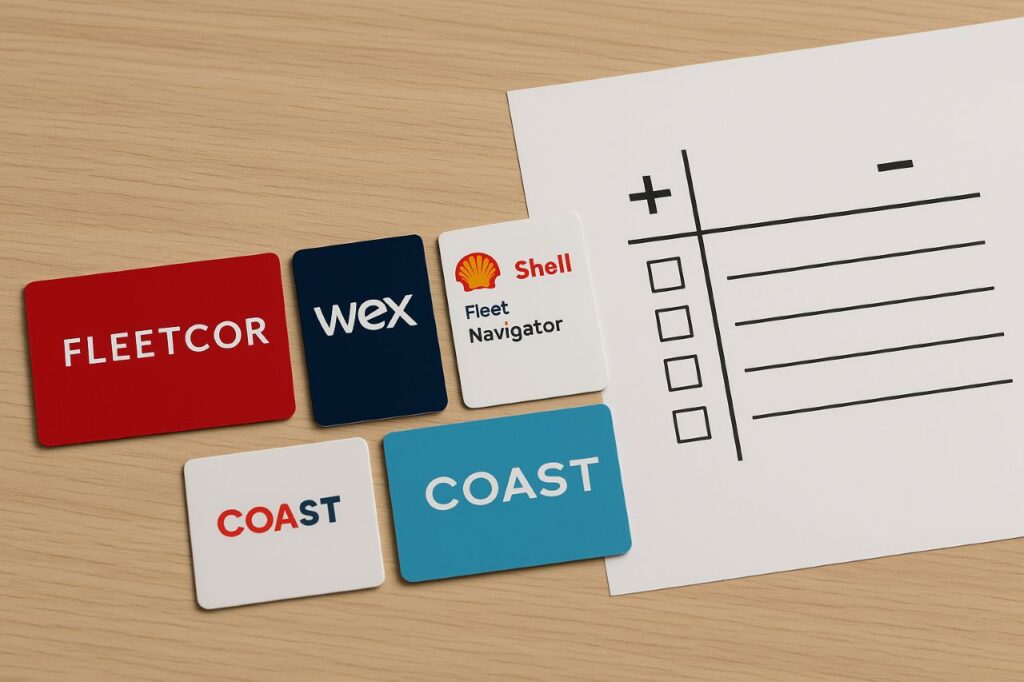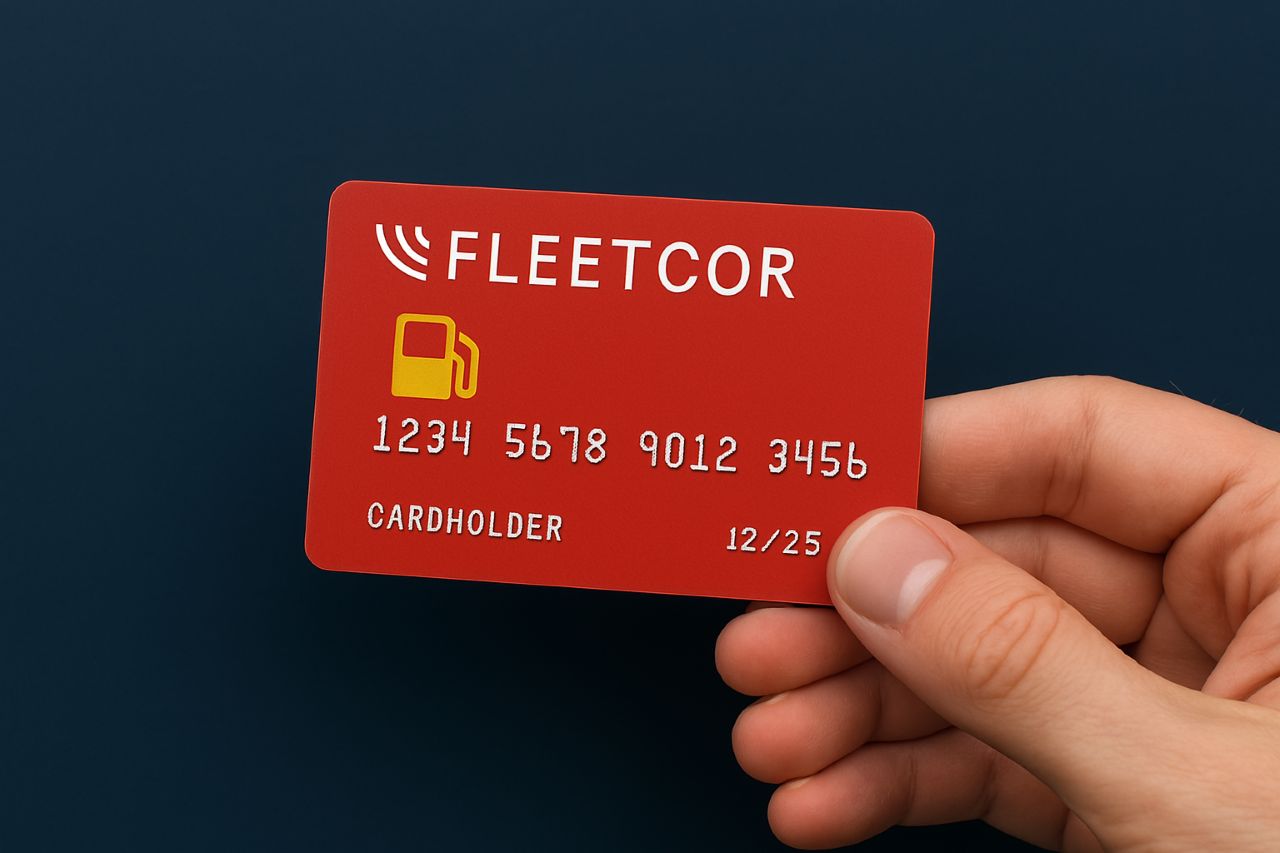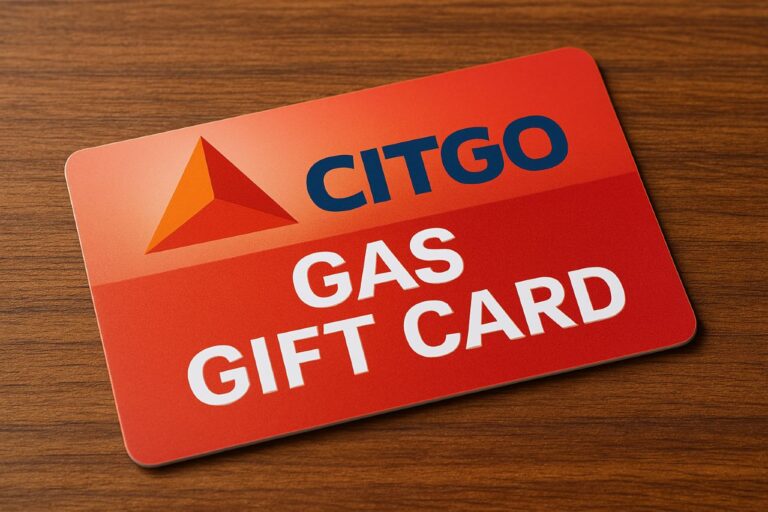Fleetcor Gas Card Review: Brilliant Perks or a Total Waste?
The FleetCor Gas Card is one of the most frequently used fuel cards by companies that plan to efficiently manage fuel costs. Known for its powerful tracking capabilities and a wide range of networks, it offers comfort and control for fleet management. Many companies are turning to FleetCor to simplify fuel purchases and reduce fraud. But is it really suitable for all companies?
This card has several advantages, such as adaptable controls and knowledge spending, but also has fees and restrictions that raise concerns. To understand the true values behind a FleetCor Gas Card, you need to take a deeper look at your advantages and disadvantages. This review will be about the most important features, costs, and whether to fulfill your promises.
Table of Contents
What is the FleetCor Gas Card?

Currently offered under the Corpay brand, FleetCor gas cards are business-oriented fuel card solutions that streamline fuel consumption management for businesses of all sizes. FleetCor Technology is a leader in payment solutions worldwide and offers many Fuel Card products, including Fuelman, Comdata, and Universal Premium Fleetcard Mastercard via Corpay. These cards are not just payment options but also integrated management systems that allow businesses to monitor fuel consumption, manage employee costs and improve operational efficiency.
These cards allow fleet managers to access actual fuel purchase data, set limits based on location, time, or dollar amounts, and create detailed budgeting and tax reports. One of the main benefits is access to a wide network of gas stations in the US. This makes it easier for drivers to charge with detours or delays. These cards also help reduce fraud and abuse by providing customizable purchase controls and ancient weapons. Whether you run a small delivery business or manage a national fleet, FleetCors offers scalable solutions that help you reduce costs and improve fuel cost transparency.
Key Features of the FleetCor Gas Card
1. Real-Time Monitoring
With FleetCor gas cards, businesses receive real-time purchase tracking benefits. This function allows the fleet manager to monitor transactions during occurrence, provide full transparency, and provide who uses what and where. This helps quickly identify abnormal activities, helping business owners control fuel consumption across the fleet, improving accountability and reduced risk of fraud.
2. Spending Controls
The FleetCor card offers advanced spending control options that can be adapted to driver, vehicle, location, or time of day. These controls help businesses to enforce their company’s fuel policies and prevent unauthorized purchases. Whether it’s a daily or weekly fuel limit or limited use at certain types of fuel or service stations, these features ensure that fuel budgets are strictly observed.
3. Detailed Reporting
Companies using FleetCor cards benefit from detailed reporting tools that make fuel cost management easier and more intelligent. The system includes a detailed and simple read report where fuel purchases are disassembled by driver, vehicle, date and location. These reports support budgeting efforts, streamline tax preparation, facilitate fuel consumption patterns or anomalies, and help businesses make data-controlled decisions.
4. Wide Acceptance
One of the great benefits of FleetCor gas cards is their wide acceptance. Drivers can be used at thousands of fuel stations across the country, including both important brands and independent locations. This will allow his drivers to have simple and comfortable access to fuel anywhere, without having to search for a specific provider.
5. Mobile App Integration
FleetCor improves user control through mobile app integration. With some taps, the fleet manager can access your account information, approve or reject transactions, view courses of purchases, and find the next approved fuel station. This seamless mobile feature allows for one management, ensuring that both drivers and managers are connected and remain informed at all times.
Benefits of the FleetCor Gas Card

1. Operational Efficiency
FleetCor gas cards significantly increase operational efficiency by automating the entire fuel management process. From actual tracking to detailed reports, businesses can eliminate manual records and reduce paper amounts. This automation will help managers promote employees, minimize human error, and allow fleet managers to spend more time on core business functions such as logistics, customer service, and growth strategies. Additionally, centralized data collection ensures faster testing and smoother switching.
2. Cost Savings
One of the most important benefits of using a FleetCor gas card is its potential for significant cost savings. Many FleetCor cards offer discounts and discounts on selected fuel stations. This increases high fuel consumption, especially for businesses. With more effective management of purchases and using these offers, businesses can optimize fuel costs and improve general budget efficiency. Combined with fraudulent measures and consumer knowledge, businesses are positioned better to reduce unnecessary costs.
3. Enhanced Security
Security is FleetCor’s top priority, with the gas card equipped with several layers of protection. Features like PIN code checking, real-time transaction warnings, and location-based restrictions prevent unauthorized use and fuel theft. Managers can quickly monitor suspicious activities, take immediate action, calm down and reduce the company’s financial risks.
4. Customizable Controls
The FleetCor gas card offers a highly adaptable tax setup and allows businesses to adapt their map use based on their operational needs. Companies can assign specific cards to individual drivers or vehicles and set parameters such as fuel type, trading hours, spending limits, and geography zones. This level of adaptation helps to enforce the company’s fuel policy, maintain compliance and adapt to the proper use of the appropriate fuel resources, but also adapts to the special needs of various departments or roles within the business.
Potential Drawbacks
1. Hidden Fees
One of the most common concerns associated with FleetCor gas cards is the presence of hidden or unclear fees. Several users reported surprised at the fees, including transaction fees for each fuel purchase, monthly account expectations, and high penalties for late payments. These fees can accumulate quickly, especially for small businesses who are trying to manage tight budgets and can compensate for potential savings on their cards if not carefully monitored.
2. Customer Service Issues
Another often mentioned drawback is the quality of customer support. Some FleetCor users are frustrating the responsiveness and effectiveness of the company’s customer service team. Complaints range from long waits and difficulties to reach representatives, to unresolved disputes and limited transparency in claim inquiries. This lack of support can lead to additional stress and delays in solving serious business problems, especially when it concerns billing errors or unauthorized fees.
3. Complex Fee Structures
The fee structure connected to the Fleet Call Gas card is often described as overly complicated. With several types of fees, such as network usage fees, reporting fees, and inactivity fees, it is difficult for businesses to understand the actual costs of using their cards. This complexity can lead to unexpected costs and confusion, especially for small businesses without committed financial teams, to manage such details.
4. Regulatory Concerns
FleetCor was also investigated by the supervisory authorities, particularly by the Federal Trade Commission (FTC). The FTC filed a formal complaint with the company to assert misleading marketing practices and hidden fees that have not been clearly articulated to customers. These legal challenges have sparked concerns about the company’s transparency and reliability, urging potential users to keep an eye on and carefully check their terms before committing to the Fleet Call Fuel Card.
Cost Breakdown and Fees
The FleetCors Fuel Card is delivered at a large number of fees that can significantly affect the total cost of using the Service. These fees vary depending on the specific card type (such as Fuelman, Comdata, Universal Premium FleetCard MasterCard), the network in which it operates, and how the company uses it. Understanding these fees is important to avoid unexpected costs.
1. Monthly Card Fees
Usually, each active card receives a monthly fee. This is typically between $5.99 and $12.99 per card. This seems manageable, but the costs of larger, active companies can be summed up quickly. This fee is calculated regardless of how often the card is used and is often assigned per cardholder or vehicle.
2. Late Payment Fees
One of the most important charges reported by users is late payment fees. If payments are missed or delayed, companies that could reach up to $75 or up to 12.25% of their outstanding balances could be affected. This will allow timely payments to maintain cost control and avoid financial burdens.
3. Transaction Fees
Certain FleetCor cards apply a transaction fee for each fuel purchase, especially if they are used at out-of-network stations. These charges can be fixed amounts or transactional percentages and can be added immediately if the driver is often refueling outside the preferred network. Understanding where cards can be accepted at no additional charge is key to minimizing these costs.
4. Account Maintenance Fees
Apart from the obvious fees, some users have pushed additional fees, including designation as account or service charges. These can be applied monthly or annually and are often bound by services such as device reporting, customer support, and online account access. These rates are not always transparent in advance, so it is important for businesses to request a full rate plan before registering.
Due to the layered, sometimes opaque nature of FleetCor’s fee structure, it is highly recommended that companies thoroughly check all conditions before committing to a particular fuel card. Hidden or misunderstood fees can undermine potential savings. Therefore, it is important to have a clear understanding of when and why fees are incurred for effective fuel costs.
Who Should Use the FleetCor Gas Card?
FleetCor gas cards are ideal for large and medium-sized businesses that need to operate vehicle fleets and comprehensively manage fuel costs. These companies are usually B. You will benefit from FleetCor’s advanced features, including real-time transaction monitoring, customizable output control, and a detailed reporting system. For businesses with multiple drivers and high fuel consumption, the ability to pursue and manage fuel purchases in different locations can lead to significant efficiency and cost savings.
Organizations that need robust testing and budget tools will find value in the FleetCors service suite, especially for those whose financial or fleet management teams are committed to. These companies often have the ability to control the complex pricing structure of their cards and use the potential discounts and discounts offered at participating fuel stations. Additionally, companies with high security and fraud priorities are highly valued for their advanced protection measures, such as PIN requirements, purchase warnings, and geographical restrictions.
Not Recommended For
Meanwhile, small businesses with limited vehicle usage or low monthly fuel costs may find FleetCor gas cards not beneficial. Repeated monthly fees, transaction costs, and potential consulting fees on account balances can quickly outweigh the savings of businesses that need to be fueled occasionally. Moreover, companies that clearly prefer pricing and minimal account management can struggle with FleetCor’s complex, sometimes opaque pricing structure.
For dedicated personnel managing fuel accounts, monitoring reports, and solving billing questions, the administrative burden can be more anger than help. If transparency, simplicity and predictable billing are priorities, alternatives with general pricing or local fuel partnerships will better fit.
Alternatives to the FleetCor Gas Card

1. WEX Fleet Cards
WEX is a key competitor to FleetCor and is widely praised for it offering a more transparent price structure. These cards are accepted by a huge network of gas stations in the US, making them more comfortable for businesses with geographically distributed business fans. WEX offers similar detailed reporting and output controls as FleetCor, but often with low surprising fees, making it an attractive option for businesses that prioritize clarity and reliability of their financial planning.
2. Shell Fleet Navigator Card
Although this map is supported by FleetCor, Shell Fleet Navigator works under its own conditions. It offers attractive fuel discounts at Shell Stations, which could lead to significant savings for businesses that regularly charge their batteries. This card combines the range and support of the FleetCors infrastructure with brand and shell promotion, making it an active option near the shell fuel network.
3. ExxonMobil Business Card
ExxonMobil’s Visit Cards are designed for simplicity and user friendliness and are not characterized by annual fees and simple fee structure. Perfect for businesses working in areas where exon or mobile stations are easily available. This card includes basic spending tracking and purchasing controls. This means it’s suitable for small businesses that don’t require advanced features but want the benefits of fleet cards.
4. Coast Fuel Card
Transparent pricing and flat fairy models make the coastal fuel card popular among small and medium-sized businesses. This avoids the complex pricing structure and hidden fees that are often connected to traditional fleet cards. Coast focuses on simplicity and simple management, offering features such as real-time purchase tracking, flexible driver control, and integration into accounting software. This is especially useful for businesses that value cost predictability and the burden of minimum managers.
Final Verdict: Is It Worth It?

FleetCor Gas Cards provide a comprehensive solution for businesses who want to manage and control fuel costs with high accuracy. Robust features such as real monitoring, detailed reporting, customizable output controls, and wide network acceptance make them especially valuable for medium to large companies with complex operational needs for multiple drivers on the road. FleetCor can increase efficiency, cost management, and fraud prevention for businesses that can monitor account activity, understand fee structures, and navigate on the program’s management side.
However, the cards are not without their drawbacks. Reports on hidden fees, complex billing structures and inconsistent customer service have raised concerns about many users. These issues can be particularly challenging for small businesses and businesses that miss out on committed accounting and fleet management teams. Additionally, regulatory investigations from agencies such as the Federal Trade Commission highlight how important it is to read small prints before entering.
In short, FleetCor gas cards can be a powerful tool when used in the right business type, but they are not a uniform solution. Companies need to carefully assess fuel consumption patterns, management capabilities, and resistance to variable fee management. Comparisons with more transparent alternatives such as WEX, coastal, or brand-specific maps such as Shell or ExxonMobil can help match your chosen solution with your financial goals and your company’s operating style.
More Articles:
- Fast Stop Gas Card: Save More with Fuel Rewards
- Card Readers on Gas Pumps Explained: Protect Your Data Today
- Gas Cards for Cancer Patients: Unlock Free Fuel Support & Reduce Expenses
- Affordable Gas Cards for Low Income Families
- Can I Use a Gift Card at a Gas Pump? Truth You Need to Know
- Gas Card Help from Churches: Where to Get Emergency Assistance
- Visa Gift Card Hacks: Can You Really Pay for Gas with It?
- Gas Card Assistance Programs: How to Get Free Fuel
- Citgo Gas Gift Card-The Ultimate Guide
- Gas Card Iceland Explained: Best Options for Tourists
Frequently Asked Questions (FAQs)
Is the Fleetcor gas card suitable for small businesses?
It may not be ideal due to potential fees and complexities. Small businesses might find more value in simpler, transparent alternatives.
Can I use the FleetCor gas card at any fuel station?
Acceptance varies by card type. Some are widely accepted, while others are limited to specific networks.
How do I apply for a FleetCor gas card?
Applications can be submitted online through the official FleetCor or Corpay websites.
Are there any discounts available?
Certain cards offer rebates or discounts at participating stations. Review the specific card details for more information.
Is there a mobile app for managing the card?
Yes, FleetCor provides mobile applications for account management, transaction monitoring, and locating fueling stations.








One Comment